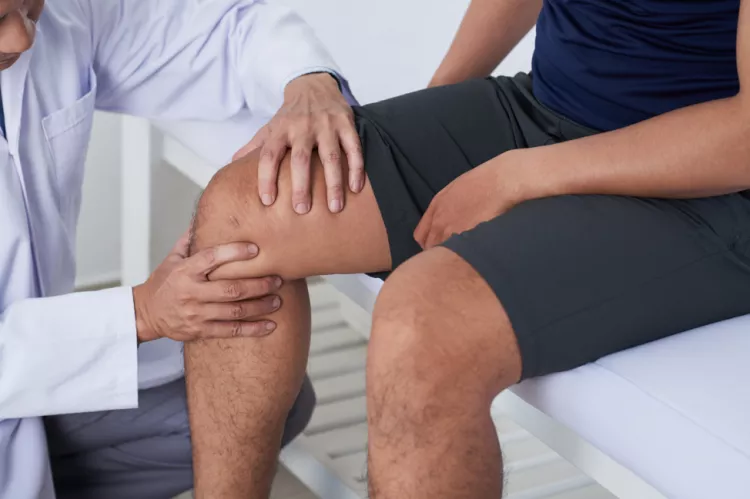
Are you dive fit?
If you're not sure, then you can't suit up.
Being fit to dive isn't just about your physical stamina. They call diving the "lazy man's sport" for a reason. It is the contraindications to scuba diving that can put both your life at risk and threaten the lives of others on your team.
A dive physical is integral to making sure you're ready to get in the pool. Here's why scuba diving medical clearance is so necessary—and why you can't go anywhere without it.
Dive Physicals Point Out Contraindications
Not every body is suitable to dive. A long list of medical indications can keep you out of the wetsuit.
In the diving world, there are three types of contraindications:
1. Temporary contraindications
2. Relative contraindications
3. Absolute contraindications
Let's look at each one by one.
Temporary Contraindications
Temporary indications are conditions that last for a few days or weeks but still stop you from diving—at least while they hang around. For example, you can't dive if you have a cold because blocked sinuses prevent your body from equalizing as you dive and ascend.
Once your cold disappears, you can dive again.
Pregnancy is another temporary contraindication because no one is sure how the pressure could affect the fetus. Once you give birth, you can dive again.
Relative Contraindications
Relative indications are those that are more permanent and may prevent you from diving but mostly require further medical exams.
Hypertension and diabetes are two relative contraindications. Whether they stop you from diving depends on their severity and how well you manage them with medications. You may even need to see a specialist before getting permission to dive, and you almost certainly need regular check-ups, especially if you haven't suited up in a while.
Absolute Contraindications
Absolute contraindications are those that mean you cannot dive—and you need a new hobby. Epilepsy is one such contraindication if it requires medication. There are also cardiovascular and lung conditions that prevent you from diving.
Even a long history of panic attacks can keep you out of the water.
There are some conditions previously regarded as absolute but now fall into the relative camp. For example, asthma was previously on the list, but thanks to improvements in management techniques, you may still be able to dive.
Why Are There So Many Contraindications?
Why could a head cold or asthma stop you from diving?
Regular dive physicals are essential because scuba diving exposes your body to effects that you won't encounter in your daily life. Even though it may not require lots of physical training, it tests the limits of your body by exposing you to:
● Cold temperatures
● Immersion
● Elevated breathing pressure
● Hyperbaric gases
If you don't have a healthy heart and lungs, you dramatically increase your risks of experiencing accidents or illnesses.
For example, immersion results in experiencing a pressure gradient that your body wouldn't otherwise see. Immersion shifts the blood from the arteries and veins in your legs and sends it to your chest. To compensate, your chest takes on an additional 24 ounces in volume, which forces your heart to take in 6 to 8 extra ounces.
As a result, all four heart chambers become enlarged, and you experience increased pressure within the right atrium, which increases your overall blood pressure.
Because your body is comprised of many systems, the rest of your body begins to respond. Your heart rate and the concentration of norepinephrine in your plasma drops.
The above description only covers immersion. It doesn't even touch on cold water and the impacts of increased pressure.
How Often Do You Need a Dive Physical?
A physical exam is the only way to gauge whether you're in good enough health to dive.
There's no hard and fast rule on the frequency of the need for dive physicals. Annual check-ups are a good starting point if you dive regularly and you either experience health issues or reach an age where your health needs more inspection.
Today, many dive schools, particularly in the United States, will ask you to fill out a form and only require a physical if an absolute contraindication appears. But others disagree with the approach. For example, in Australia, you need clearance from a physician to even get in the pool. In the UK, they recognize a medical history form as sufficient.
Indeed, if you are a professional diver, you can expect to see doctors regularly and have full medical clearance. However, this reflects workplace safety standards and the frequency of their dives more than the benefits of the physical itself.
Be Prepared to Share Information with Your Doctor
If you are getting a dive exam, you may find the need to show your doctor how it's done, even if the staff trained is at Ultimate Medical Academy. General physicians have a lot of ground to cover, and if you don't live in a diving hotspot, they may rarely if ever provide diving physicals.
Bring in a copy of the "Diving Medical Statement and Questionnaire" from the WRSTC to help guide them along.
Choose Schools that Focus on Health
There are risks inherent in scuba diving. Even though we aren't all in agreement on how to mitigate them through physical exams, we do know that choosing schools and services that recognize those risks is essential.
It doesn't matter if you are completely healthy—and have the exam to prove it. If a school or provider doesn't ask about the potential for contraindications, it may not be safe to get into the water with them.
Certifications and associations are good indicators of professional quality. You can find a list of certifications to look for here.
Stay Healthy Underwater
Whether or not you need a dive physical depends on where you live and how healthy you are. However, it never hurts to know the full state of your health before you try diving for the first time.
Are you looking for more dive content? Check out our Travel & Trips archive for inspiration.





















